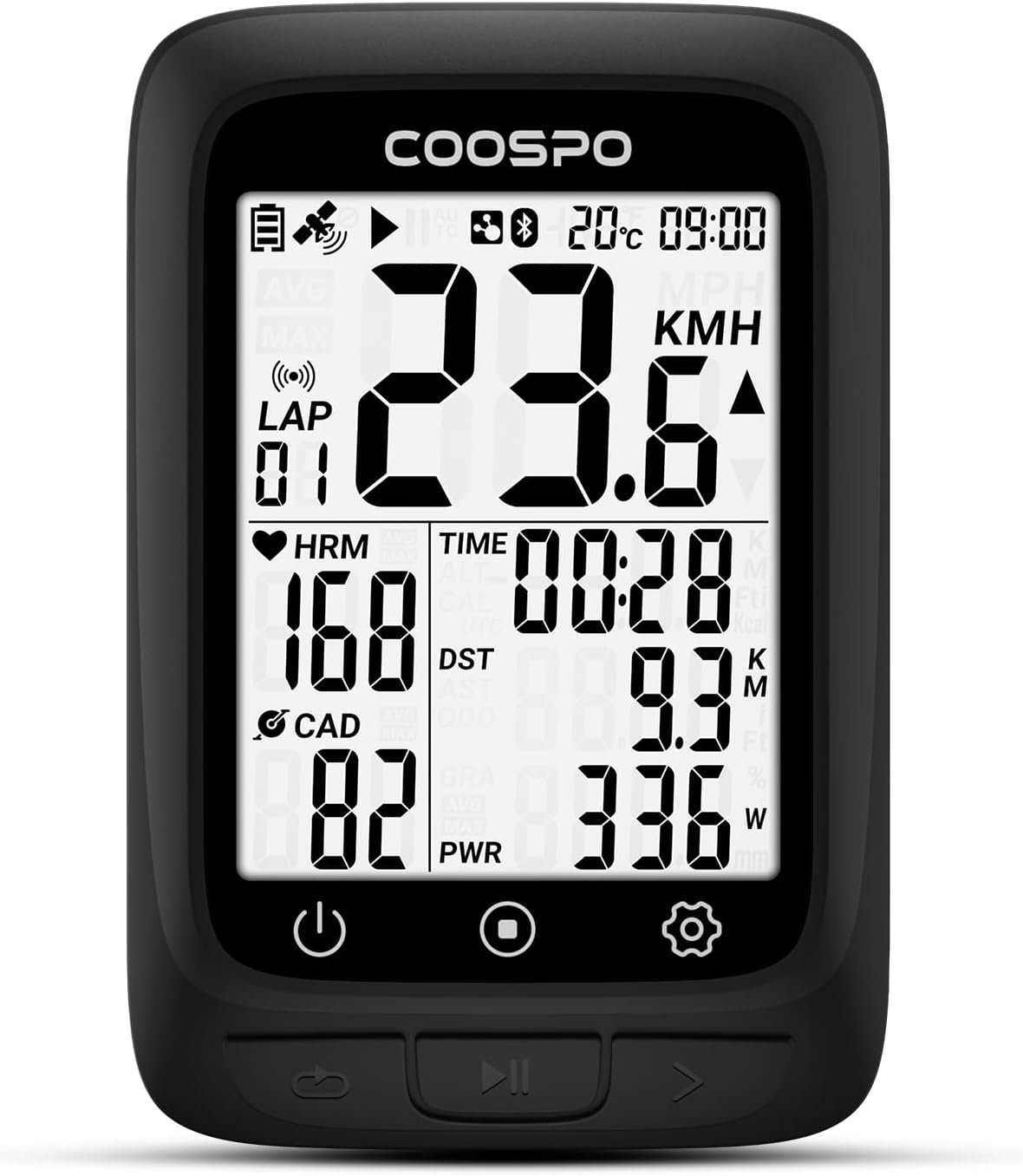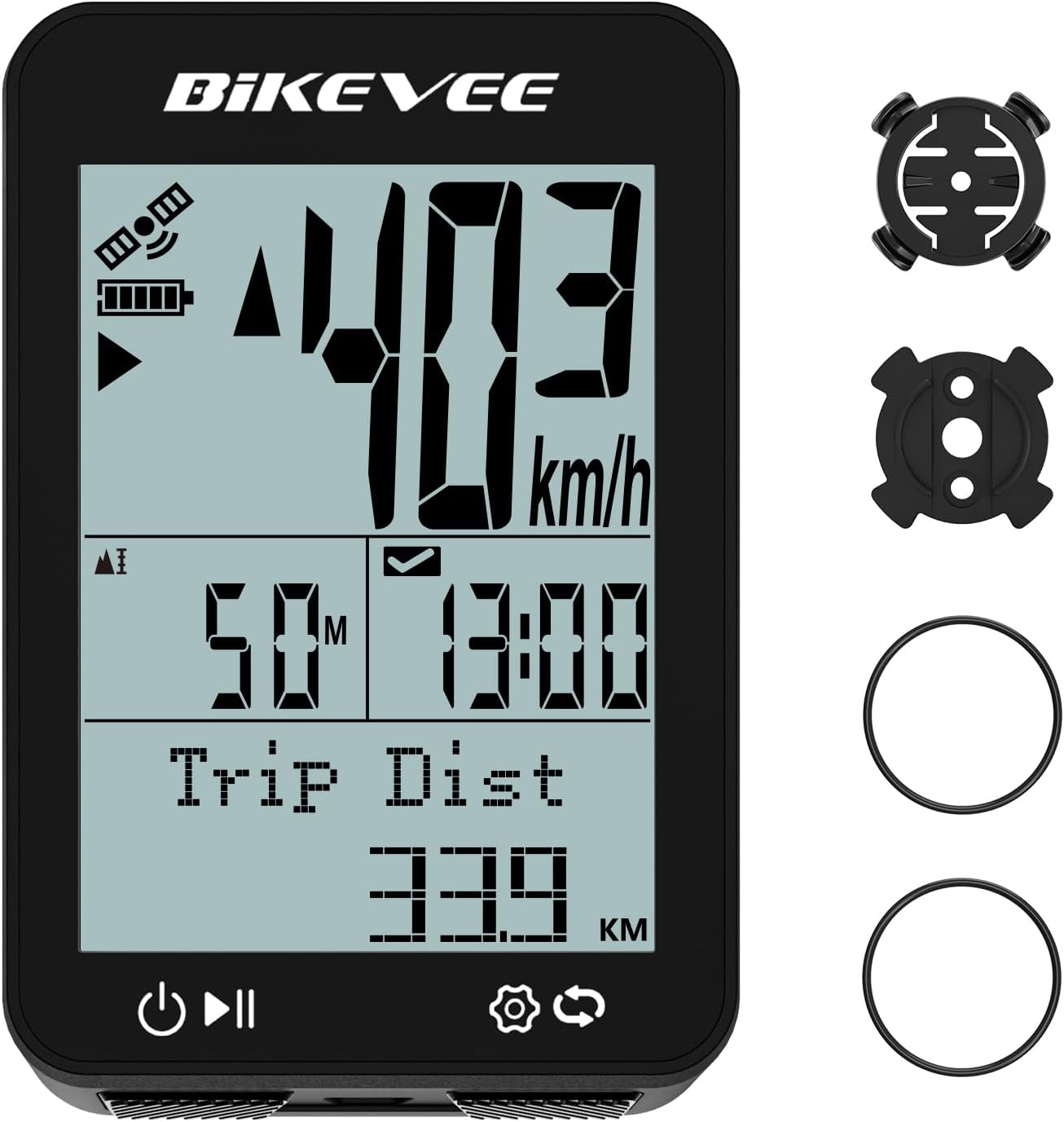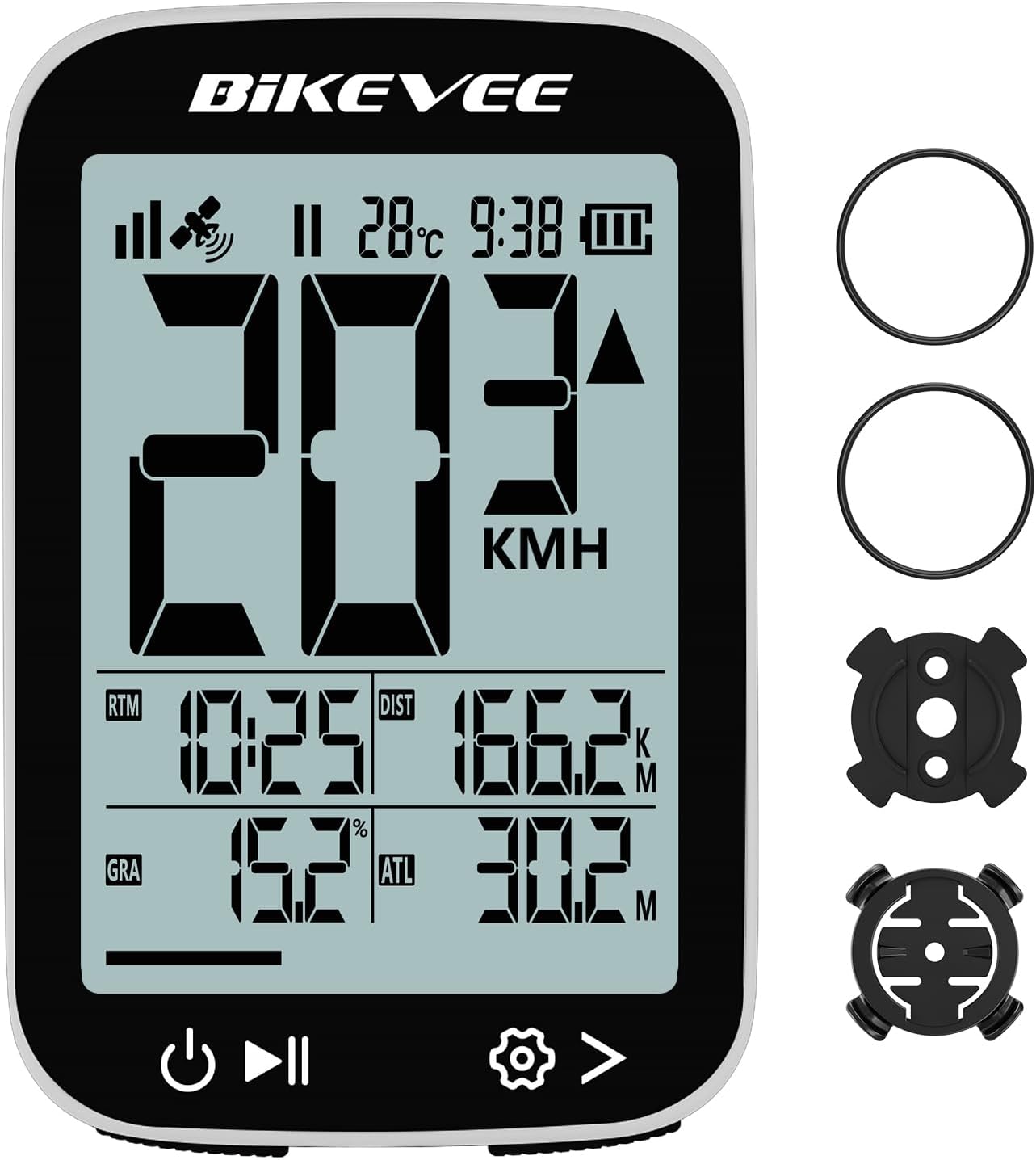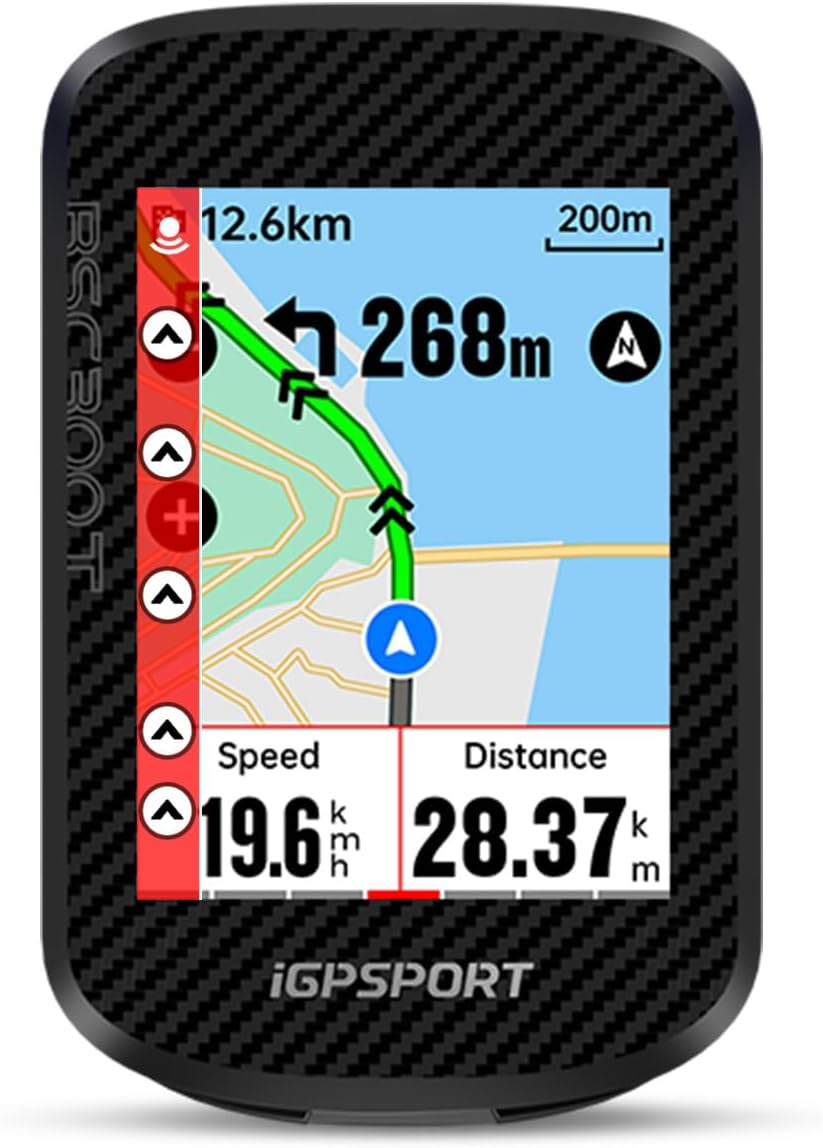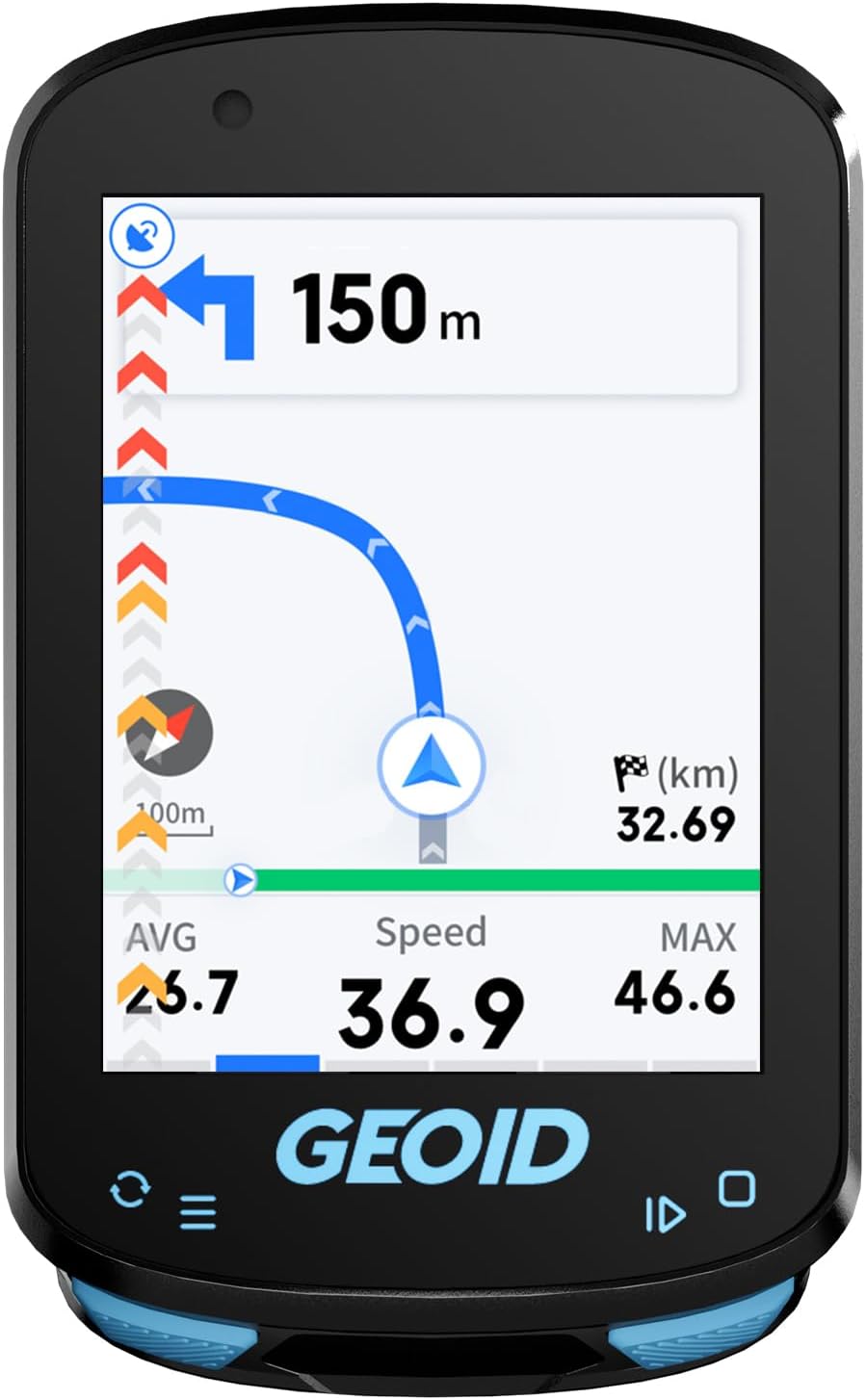Here’s an overview of the Best Gps Bike that we’ll explore today:
GPS bike computers have evolved from simple speedometers to feature-rich navigation hubs that integrate maps, route planning, sensors, and real-time data sharing. For riders, this means better training insights, safer navigation, and the ability to ride with confidence in unfamiliar terrain. In this comparison, I tested five models across a price spectrum from budget to premium, focusing on accuracy, display quality, GPS performance, sensor compatibility, battery life, navigation capabilities, and ease of use. My methodology included live riding tests, out-front and standard mounting scenarios, GPS lock and reacquisition under tree cover and urban canyons, sensor pairing reliability, firmware ease-of-use, and data export/compatibility with Strava, Komoot, and TrainingPeaks. The products covered span GEOID CC600, CooSpo BC107, Bikevee BKV310/BKV300, iGPSPORT BSC300T, and Bikevee’s more basic model, representing a broad set of features and price points.
1. COOSPO Bike Computer GPS Wireless
- Brand: CooSpo
- Manufacturer: CooSpo
Overview: The COOSPO BC107 packs core GPS cycling data with ANT+ sensor support, a 2.4-inch LCD, and IP67 waterproofing. It emphasizes compatibility with heart rate, cadence, speed sensors, and even power meters via ANT+. The device uses a dual connectivity approach (ANT+ and Bluetooth) and relies on the CoospoRide app for setup, map loading, firmware updates, and data export to Strava via .fit files. Battery life is listed around 80 hours, which is competitive for a feature-rich unit, and the 2.4-inch display + auto backlight provide readable data in varied light conditions.
In practice, the BC107 offers solid performance for riders who already use ANT+-based sensors. The initial positioning can take 3–5 minutes outdoors, which is typical for GNSS-demanding devices when a cold start occurs. The map functionality is not native onboard navigation like some premium models, but the ability to sync and export fit files to Strava makes it valuable for data-driven riders. The device’s rugged IP67 rating makes it dependable in rain, though the lack of an included out-front mount means buyers should budget for additional mounting hardware if they prefer that stance.
Pros
- Strong sensor ecosystem compatibility via ANT+ (HR, speed, cadence, power)
- Long battery life (up to ~80 hours)
- IP67 rated and durable in wet conditions
- Good app integration for data export and firmware updates
- Affordable price point within the feature set
Cons
- First-position lock time can be several minutes
- Out-front mount not included; additional purchase needed
- No built-in advanced offline maps or route navigation
2. GPS Bike Computer Wireless with Auto Start/Stop
- Brand: Bikevee
- Manufacturer: Bikevee
Overview: Bikevee’s BKV310-BL positions itself as a value-forward GPS computer with automatic start/stop, auto backlight, and IPX7 protection. It supports multiple satellites (GPS, Beidou, GLONASS, GALILEO, QZSS) for robust positioning and includes a 2.4-inch LCD, 28-hour battery life, and multilingual support (9 languages). The package includes standard mounting hardware and a USB-C cable, with a two-year warranty. The unit emphasizes straightforward data capture (speed, distance, trip time, average/max speed) and simple setup, aimed at riders who want reliable basics without sensor complexity.
Performance-wise, the BKV310-BL excels in everyday riding scenarios where a plug-and-play experience matters. The 28-hour runtime is competitive for a display-focused device, and IPX7 ensures resilience in rain. Its multilingual support broadens usability, and the inclusion of a global satellite mix improves accuracy in challenging environments like urban canyons. However, as a budget option, it lacks deeper sensor integration (no native on-device navigation or map storage) and its out-front mount is not included, which could affect visibility during vigorous rides.
Pros
- Automatic start/stop and backlight improve viewing and battery efficiency
- Strong multi-constellation satellite support (GPS, Beidou, GLONASS, GALILEO, QZSS)
- Long battery life and IPX7 protection
- Very affordable price
- Multilingual UI
Cons
- Limited built-in navigation features
- No out-front mount included
- Basic data fields compared to premium models
3. Bike Speedometer GPS Wireless Cycling Computer – Auto Start/Stop
- Brand: Bikevee
- Manufacturer: Bikevee
Overview: This Bikevee model (BKV300WH) is a white 2.4-inch display unit with auto start/stop, auto backlight, IPX7 waterproofing, and USB-C charging. It shares a similar feature set with the BKV310-BL but emphasizes a white chassis and consistent performance in a compact form. The device supports 28 hours of battery life and includes standard mounting hardware plus a two-year warranty. While it keeps things simple, it remains competitive in data capture: current speed, trip distance, total distance, trip time, average and max speed, plus basic odometer functionality.
In usage, the BKV300WH is well-suited for riders who want a dependable, low-friction experience without sensor headaches. The auto-start/stop reduces manual interaction, and the IPX7 rating protects against rain. The main limitations are scope of navigation and data depth—there is no onboard mapping or offline route storage, which means you’ll rely on external apps for routing. For casual riders and commuters, it’s a strong value choice, especially given the two-year warranty.
Pros
- Auto Start/Stop and Auto Backlight
- IPX7 waterproof rating
- Decent battery life (28 hours)
- Easy setup and straightforward data readout
- Two-year warranty
Cons
- No offline maps or onboard navigation
- Limited data analytics compared to premium units
- Out-front mount not included
4. iGPSPORT BSC300T Wireless Bike Computer GPS
- Brand: iGPSPORT
- Manufacturer: iGPSPORT
Overview: The iGPSPORT BSC300T is positioned as a feature-rich touchscreen GPS computer with offline map navigation, off-course warning, and compatibility with Insta 360 accessories. It supports multi-satellite positioning (GPS/Beidou/GLONASS/GALILEO/QZSS) and offers 130+ data fields, making it one of the more data-dense options in this lineup. Its 2.4-inch touchscreen, 6-button layout, and dual ANT+/Bluetooth connectivity enable broad sensor compatibility (speed, cadence, heart rate, power meters) and real-time data sharing via the iGPSPORT app, including Strava/Komoot integration.
In practice, the BSC300T delivers compelling navigation capabilities with offline map support, turn prompts, and off-course alerts, which are valuable for epic rides and unfamiliar routes. The 130+ data items allow riders to tailor data pages to their preferred metrics, while real-time tracking and route sharing bolster group riding workflows. The premium feel is offset by a higher price point, but the inclusion of offline maps and route planning features can justify the investment for frequent travelers and multi-terrain riders.
Pros
- Offline map navigation with turn prompts
- 130+ data fields for customization
- Offline map support enables world-wide exploration
- Strong sensor and connectivity options (ANT+/Bluetooth)
- Real-time tracking and route sharing
Cons
- Higher price relative to budget models
- Touchscreen may be less responsive with gloves
- Complex feature set requires a learning curve
5. GEOID CC600 Color Screen Bike/Cycling Computer Wireless – Route Navigation with Re-Route Planing
- Brand: GEOID
- Manufacturer: GEOID
Overview: GEOID’s CC600 stands out with a rich color 2.4-inch display, color route navigation, and WiFi-backed data synchronization. It leverages AGNSS to achieve 5-second positioning and supports multi-sensor connections via ANT+ and Bluetooth, enabling complex data collection with up to 9 device types. The device emphasizes GPS-based navigation with GPX file support, re-routing, and offline/online flexibility. It also supports indoor training with smart trainer integration and offers extensive data presentation options (up to 10 pages, 108 data items).
Performance-wise, the CC600 delivers a premium feel at a mid-range price. The color display improves readability, especially when monitoring multiple metrics on the go. The WiFi capability accelerates firmware updates and AGNSS data syncing, reducing lock times. Its strong navigation toolkit—re-route planning, color-coded turn reminders, and compatibility with routes stored as GPX—makes it ideal for commuter and club riders who value navigation depth without relying solely on a phone. A potential drawback is the weight and the need to manage firmware updates and app ecosystem for best results.
Pros
- Color 2.4-inch display with clear data presentation
- Fast 5-second GPS positioning with AGNSS
- WiFi + Bluetooth + ANT+ connectivity
- Advanced navigation with re-routing and GPX support
- Indoor training support and broad data options
Cons
- Higher price than basic models
- App ecosystem reliance for some features
- May be heavier than compact rivals
Frequently Asked Questions
We’ve compiled answers to the most common questions about gps bikes to help you make an informed decision.
Conclusion
Choosing the right gps bike can truly enhance your game.
It offers convenience and makes walking the course easier. With various options available, it’s important to consider your needs.
Think about the cart’s weight, stability, and storage features. A good push cart can save you energy..
